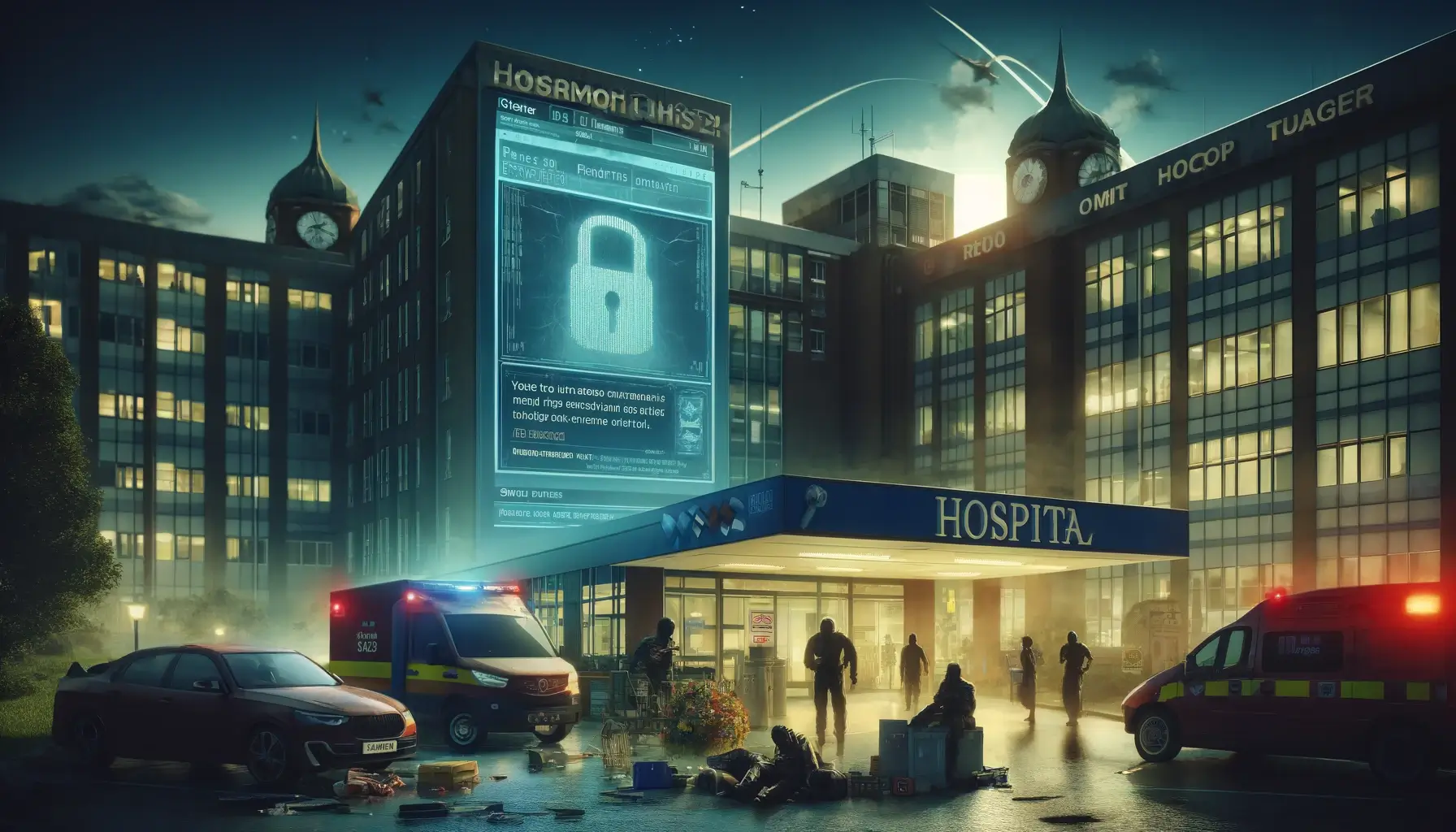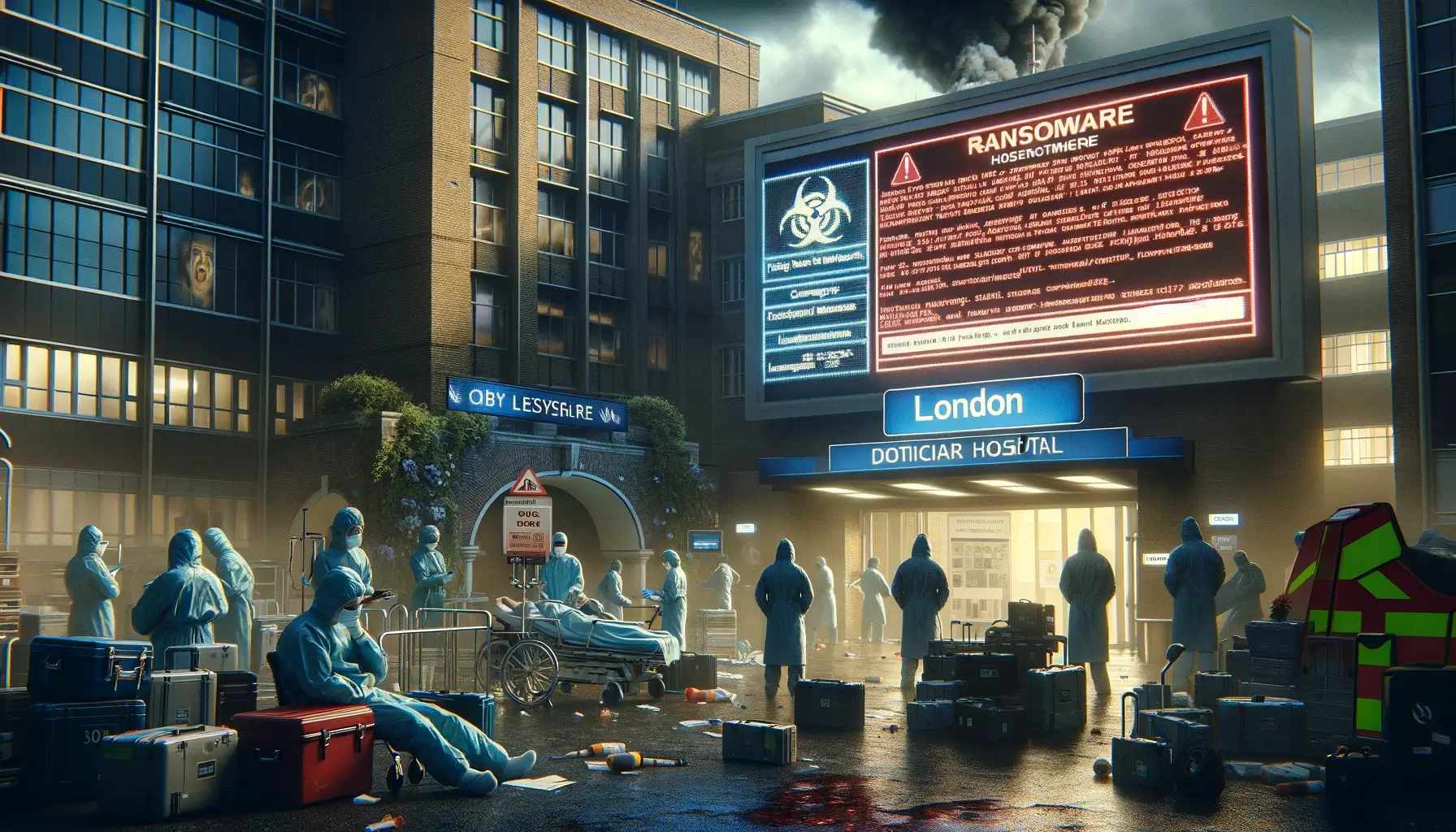NHS London added: “We are sorry to all patients impacted."
The UK government has blamed Russian hackers are behind the cyber attack on London hospitals, highlighting the healthcare industry's vulnerability to geopolitical threats. The attack disrupted medical processes and forced some facilities to return to traditional patient data management methods. The UK government plans to review security measures and increase security to prevent a repeat of the attack, emphasizing patient safety and countering state-sponsored cyber operations.
Incident Details and Timeline
June 5, 2024 – In the wake of the targeted cyber attack on a few of the topmost hospitals in London, Ciaran Martin, the former boss of the National Cyber Security Centre (NCSC) of the United Kingdom, put the blame on the Russian cyber criminals. That was one revelation as authorities struggled to cope with the impact of the attack that has significantly affected the functioning and delivery of healthcare in affected hospitals.
June 1, 2024 – An attack was launched that would initiate a ransomware attack on the IT systems of several hospitals in London. The hackers used ransomware to lock key data and asked for the release of the content by paying them some amount. As a Trojan, this malware created a strong barrier that rendered most of the hospital’s operating systems inaccessible especially for admission, scheduling and records.
Infection list: King’s College Hospital, St Thomas’ Hospital and Royal Free Hospital as they were impacted on June 2, 2024. These institutions faced massive challenges in their operations, which hindered medical processes, including surgeries and basic services such as ambulance assistance. In response to this, some facilities were forced to return to traditional ways of managing patient data – only adding pressure on the limited supplies and personnel available.
June 3, 2024 – Scottish National Gallery’s press statement; Ciaran Martin addressing the media, claimed that the attack was initiated by Russian state actors. According to Martin, this is in line with other attacks which have been conducted by well-known Russian cyber actors. This attribution accords with other instances of cyber aggression that involves Russian hackers targeting important facilities in western nations.
Implications and Government Response
To this end, the attack sheds more light on threat actors’ susceptibility within the healthcare industry, especially amid geopolitical threats. Hearse similar observed in other countries that underscores the importance of improving the cybersecurity measures.
On 4th June 2024, the UK government said that it was reviewing the security measures governing the protection of the country’s healthcare facilities, and increasing security in a bid to prevent a repeat of the attack. This plan is designed to address actions that might be taken to protect healthcare facilities from a similar assault in the future by enhancing IT security measures and enhancing awareness of ICT security risks among health care personnel.
Statements from Authorities:
- Ciaran Martin: "This attack bears the hallmarks of Russian state-sponsored cyber operations. It is a clear indication of the persistent threat these groups pose to our critical infrastructure."
- UK Health Secretary: "We are working closely with the NCSC and other security agencies to ensure our hospitals are protected from such malicious activities. Patient safety remains our top priority."
This incident is not an isolated one as it fits a growing trend of cyber threats that are increasingly impacting healthcare systems around the world. This year similar attacks have been done in the United States, the Netherlands, and presumably other member countries of the NATO; these cyberattacks have been associated with the Russian hacker groups, Killnet and the Cyber Army of Russia.
International Response:
- Enhanced Cooperation: The attack has also led to debates aimed at urging countries across the globe to adopt an amalgam of strategies geared towards countering state-sponsored hackers effectively. This is considered necessary and helpful in combating such attacks involving consumption of food products suspected to have been contaminated by another nation.
- Public Awareness Campaigns: That is why, the government regards increase of citizens’ awareness in terms of protection of their accounts and personal information, as well as informing the authorities about any suspicious activity as one of the key priorities of preventing similar threats in the future.
Conclusion
The case of the recent hacking of London’s hospitals by Russia emphasizes that the further reinforcement of cybersecurity precautions is absolutely necessary in the healthcare industry. Over the years, new threats have emerged, it has become imperative to prepare and take the necessary measures to protect the multiple vital information assets in place and guarantee the stability of health care facilities. This case itself is a kind of signal that the cyber warfare has the strong connection with the geopolitical issues and that it needs the united efforts for the defense.


